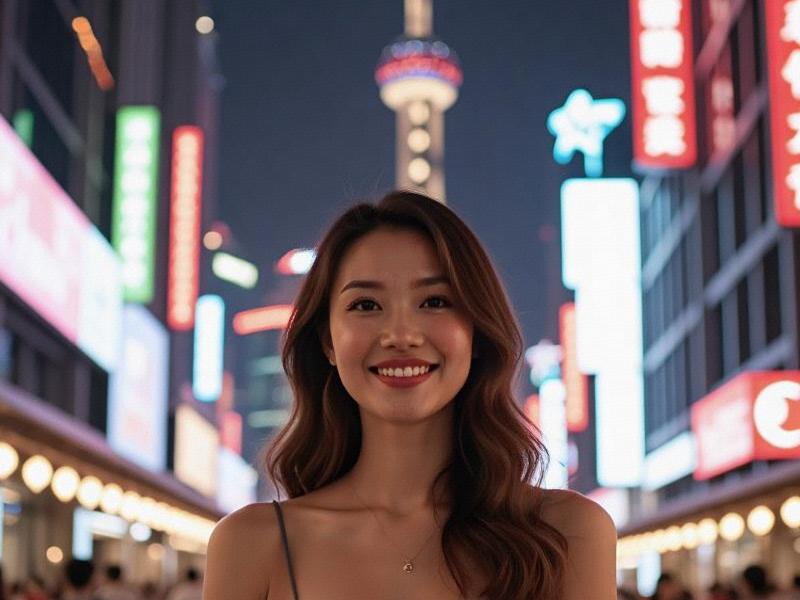This in-depth feature explores how Shanghai's diverse female population is reshaping perceptions of Chinese womanhood through career achievements, fashion statements, and social activism in China's global metropolis.

The neon lights of Nanjing Road reflect off the polished surfaces of corporate towers where a quiet revolution is unfolding - Shanghai's women are rewriting the rules of Asian femininity. Gone are the days when delicate features and domestic skills defined Shanghainese beauty; today's standard encompasses professional prowess, cultural fluency, and unapologetic ambition.
In the glass-walled offices of Pudong's financial district, 32-year-old hedge fund manager Vivian Wu commands a team of analysts while eight months pregnant. "My mother thought I'd quit after marriage," says Wu, adjusting her designer maternity dress. "But my investors expect the same performance regardless of my personal life." Like many of her generation, Wu represents the "steel magnolia" phenomenon - combining traditional grace with contemporary toughness.
上海贵族宝贝sh1314 Fashion mirrors this cultural shift. While the qipao remains a ceremonial garment, Shanghai's streets showcase sartorial innovation where East meets West. Local designer Zhang Na's "Power Cheongsam" collection - featuring traditional silhouettes with functional pockets and stretch fabrics - has become the uniform for female executives. Meanwhile, the rise of "guochao" (national trend) brands sees young women pairing vintage Cultural Revolution jackets with Italian heels, creating a visual language that honors heritage while claiming modernity.
The workplace tells an even more compelling story. Women now hold 42% of C-suite positions in Shanghai-based multinationals (compared to 29% in Beijing and 31% in Hong Kong), according to the 2025 McKinsey China Gender Report. Tech giants like Alibaba and Tencent report female technical talent retention rates exceeding 80% after childbirth, thanks to progressive policies developed in their Shanghai headquarters.
上海花千坊419
Education fuels this transformation. Shanghai's female college enrollment rate stands at 63%, with women dominating prestigious international programs. At NYU Shanghai's AI research center, 58% of graduate researchers are women - a statistic that would surprise Western observers accustomed to male-dominated tech fields. "We're seeing a generation that refuses artificial limits," notes Chancellor Joanna Waley-Cohen.
上海喝茶服务vx Yet contradictions persist. The "leftover women" stigma lingers despite growing pushback, with matchmaking agencies reporting 28% of female clients over 35 hold PhDs. Social media amplifies unrealistic beauty standards even as body positivity gains traction - plastic surgery consultations among college students rose 17% last year. And the city's crushing cost of living forces difficult choices, with the average age of first-time mothers now 32, compared to 26 in 2010.
Cultural observers identify a distinctly Shanghainese approach to modern womanhood that blends pragmatism with poetry. As novelist Wei Hui (author of "Shanghai Baby") observes: "Our women navigate skyscrapers and silk markets with equal ease, finding power in both spreadsheet and cheongsam." This hybrid identity is perhaps best embodied by figures like Olympic fencing gold medalist Xu Anqi, who parries questions about marriage with the same precision as her ripostes: "My life isn't a checklist."
As Shanghai prepares to host the 2026 World Women's Forum, the international community watches this dynamic city for clues about Asia's evolving gender landscape. The Shanghainese woman of 2025 may wear many hats - executive, artist, mother, activist - but she wears them all with unmistakable Shanghai flair: cosmopolitan yet rooted, ambitious yet nuanced, redefining what it means to be both Chinese and thoroughly modern.